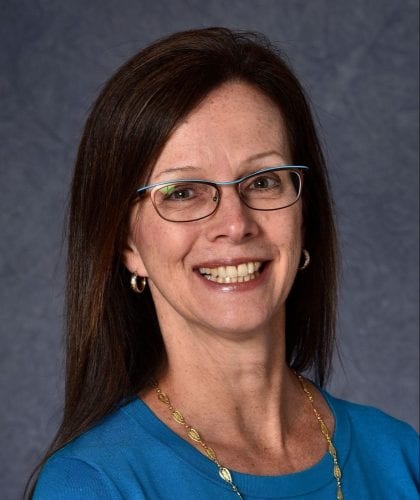Kathryn Jablokow
Professor of Engineering Design & Mechanical Engineering
Associate Chief Academic Officer, Great Valley School of Graduate Professional Studies
2018 TLT Faculty Fellow
Focus Area: Digital Fluency
Without creativity – the use of imagination or original ideas – entrepreneurship, innovation, and design thinking would not exist. This near universal recognition has led to numerous writings on creativity concepts and techniques, as well as wide-ranging advocacy in higher education for “creative thinking” and “creative problem solving.” University instructors – including those at Penn State – routinely develop, borrow, and/or adapt materials designed to enhance students’ creative abilities. Often, however, those classroom resources remain undiscovered to other faculty for a multitude of reasons.
As a faculty member who has been teaching and researching at Penn State (both at University Park and at Great Valley) in the domain of creativity from an engineering perspective for over 25 years (including the development of a Coursera MOOC on Creativity that has attracted nearly 250,000 learners so far), I have observed this pattern time after time. A faculty member wants to encourage creative thinking in his/her classroom and hurriedly creates materials and activities to do so, not realizing that s/he is “reinventing” something that already exists in another department or at another Penn State campus.
In order to disrupt that pattern, Jablokow aims to use her fellowship to create a Compendium of Creative Fluency that will make concepts, practices, activities, and materials covering creative fluency readily available to Penn State faculty and students. Additionally, resources will be produced specifically for instructors to provide guidance on how to support creative fluency in their coursework. Because creativity is so widely necessary these materials will be discipline-agnostic.

Several decades of research from the behavioral sciences show that creativity is a diverse topic. Those studies’ findings are driving the shift in pedagogy away from one type of creativity, such as producing “radical, breakthrough ideas,” to a diverse subject in which students can become fluent. Factors such as creative level – a person’s capacity for creative behavior based on his/her intelligence, skills, and experience – and creative style – a person’s cognitive preference of structure for generating ideas or solving problems – are important nuances that should not be ignored by instructors. This fellowship project will also reflect such findings in the compilation of resources and enable faculty and students to apply them accurately and reliably.
The Team
Ryan Wetzel (lead)
Jenay Robert
Zach Lonsinger